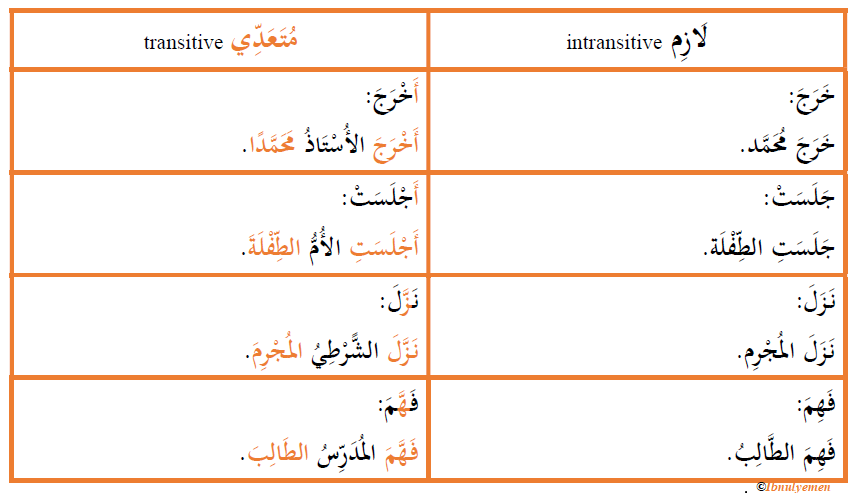
transitive [tran-si-tiv, -zi-] ExamplesWord Origin adjective
- Grammar. having the nature of a transitive verb.
- characterized by or involving transition; transitional; intermediate.
- passing over to or affecting something else; transeunt.
- Mathematics. noting a relation in which one element in relation to a second element and the second in relation to a third element implies the first element is in relation to the third element, as the relation “less than or equal to.”
noun
- Grammar. transitive verb.
Origin of transitive 1550–60; Late Latin trānsitīvus, equivalent to Latin trānsit(us) (see transition) + -īvus -ive Related formstran·si·tive·ly, adverbtran·si·tive·ness, tran·si·tiv·i·ty, nounnon·tran·si·tive, adjective, nounnon·tran·si·tive·ly, adverbnon·tran·si·tive·ness, nounun·tran·si·tive, adjectiveun·tran·si·tive·ly, adverbun·tran·si·tive·ness, noun Examples from the Web for transitive Historical Examples of transitive
The transitive verb has no subject; the noun nothing to govern it.
Notes and Queries, Number 218, December 31, 1853
Various
The government of all transitive verbs is necessarily objective.
A Handbook of the English Language
Robert Gordon Latham
The beauty of Chinese verbs is that they are all transitive or intransitive at pleasure.
Ezra Pound
If incomplete, determine whether they are transitive or copulative verbs.
Marian Wharton
In the transitive state of politics, ‘that is the question.’
Letters and Literary Memorials of Samuel J. Tilden, v. 1
Samuel J. Tilden
British Dictionary definitions for transitive transitive adjective
- grammar
- denoting an occurrence of a verb when it requires a direct object or denoting a verb that customarily requires a direct object“to find” is a transitive verb
- (as noun)these verbs are transitives
- grammar denoting an adjective, such as fond, or a noun, such as husband, that requires a noun phrase and cannot be used without some implicit or explicit reference to such a noun phrase
- logic maths having the property that if one object bears a relationship to a second object that also bears the same relationship to a third object, then the first object bears this relationship to the third objectmathematical equality is transitive, since if x = y and y = z then x = z
Compare intransitive Derived Formstransitively, adverbtransitivity or transitiveness, nounWord Origin for transitive C16: from Late Latin transitīvus from Latin transitus a going over; see transient Word Origin and History for transitive adj.
“taking a direct object” (of verbs), 1570s (implied in transitively), from Late Latin transitivus (Priscian) “transitive,” literally “that may pass over (to another person),” from transire “go or cross over” (see transient).
transitive in Science transitive [trăn′sĭ-tĭv]
- Of or relating to a mathematical or logical relation between three elements such that if the relation holds between the first and second elements and between the second and third elements, it necessarily holds between the first and third elements. The relation of being greater than in mathematics is transitive, since if a > b and b > c, then a > c.
 Liberal Dictionary English Dictionary
Liberal Dictionary English Dictionary